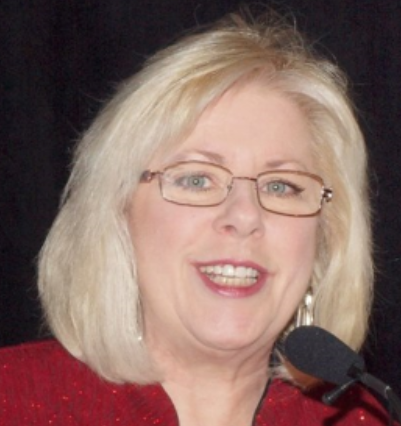For the first time, the pill has emerged as the most common form of abortion in Kansas, opening new territory for a battle over one of the hottest issues of a generation.
Commonly known as a medical abortion, pills were used in nearly in 60 percent of all abortions in Kansas last year, mirroring a national trend that started when the Food and Drug Administration approved the abortion pill RU-486 in 2000.
Eight years ago, medical abortions made up just 26 percent of all Kansas abortions. It became the most common form of abortion in 2016.
The increasing number of medical abortions is attributed to the fact that it’s a less invasive than surgery and women have more control over the process, part of which can be carried out at home.
Nationally in 2014 – the last year for which numbers are available – medical abortions made up about a quarter of all abortions. In 2005, they made up about 10 percent and in 2001 it was 3 percent.

The rise in the number of medical abortions is setting off a new debate in Kansas and across the country over new types of restrictions and controversial research over whether the effect of the abortion drugs can be reversed half way through the two-step regimen.
The medical advancement also changes the dynamic of the debate, raising political questions for abortion rights opponents who may have to confront the issue more clinically without graphic pictures of late-term abortions, stories of grimy clinics that are hazardous for women or research they say demonstrates that the unborn can feel pain.
“The pro-life movement is most successful when it can humanize the fetus for people who are ambivalent about abortion,” said historian Daniel Williams, who authored “Defenders of the Unborn,” a 2016 book on the pro-life movement.
Both sides don’t see anyone with more of an upper hand because of a shift to medical abortions although past polls have shown the public is more accepting of abortions earlier in a pregnancy than later.
Abortion opponents say they still believe there is a strong case to be made for tighter regulations regardless of how early an abortion might be taking place in a pregnancy.

“There’s plenty to talk about when it comes to early abortions,” said Mary Kay Culp, executive director of Kansans for Life. “The fact that it is a pill gives the wrong impression to people that it’s a simple thing. Sounds like you swallow a pill, magic happens and everything goes away automatically.”
Culp is ready to raise safety questions about the method and argues that research – as hotly contested as it may be – shows that the procedure can be reversed.
Kansans for Life is already asking candidates running for the Kansas Legislature whether they would support a bill requiring women to be told that an abortion pill could be reversed.
“It’s still a human life and it’s still dangerous,” Culp said of medical abortions.
Supporters of abortion rights, meanwhile, are bracing for an assault on medical abortions next legislative session.
Their cause was dealt a set back recently when the U.S. Supreme Court let stand an Arkansas law that required providers offering the abortion pill to contract with a doctor who had hospital visiting privileges.
The court’s decision forced Planned Parenthood to stop providing medication abortions at its Little Rock and Fayetteville clinics. Planned Parenthood says the restriction made Arkansas the first state to effectively ban medical abortions.
A bill similar to Arkansas’ medical abortion law or another requiring women to be notified of the possibility of reversing the abortion drug are not out of the question for next year’s Kansas legislative session.
A lot of that, however, depends on the outcome of a case before the state Supreme Court, which could decide that the right to an abortion is guaranteed by the state Constitution.

Rachel Sweet, Planned Parenthood’s lobbyist in Topeka, says she doesn’t believe abortion-rights opponents are going to let up just because the type of abortion is changing.
“They are going to come for whatever method women are choosing,” Sweet said. “This is the next frontier.”
But even leading abortion opponents see how the abortion pill is changing the playing field.

Russell Moore, president of the Ethics & Religious Liberty Commission of the Southern Baptist Convention, seemed to suggest as much in his 2015 book Onward.
“The abortion debate is moving rapidly from the clinical to the chemical as abortion-causing drugs become more common and accessible,” Moore wrote. “People will not have to schedule appointments to procure abortions, but instead fill prescriptions all the more for the same result. Who knows what these technological developments will do to the abortion mentality?
“Real gains are being made but we cannot pretend that we do not have a long way to go until the unborn are – as President George W. Bush put it – ‘protected in law and welcomed in life.’”
Sweet agreed it might be harder politically for abortion foes if they can’t present the public with graphic images to make their case, but added, ‘They’re still going to keep up the fight.”
Williams, the historian from the University of West Georgia, doesn’t rule out that abortion opponents can find ways to humanize the issue even at the earliest stages of pregnancy.
He points out that’s already been done with legislation that bans abortion from the time a fetal heartbeat can be detected.
“It’s not impossible for the pro-life movement to humanize the fetus or the embryo at an extremely early stage,” he said.
“But, the pro-life movement is at a greater disadvantage when dealing with stages of pregnancy when the fetus or embryo would have less of the characteristics that we would generally identify as a full-term baby,” he said.

Fordham University professor Charles Camosy, a pro-life author who wrote “Beyond the Abortion Wars: A Way Forward for a New Generation,” summed up the issue this way.
“We are not well prepared,” Camosy said
“Our focus for the last several decades has been on resisting the violence done by sharp instruments on well-developed, prenatal children. We are not geared up for fighting a drug, easily accessible online, which pushes a early-term child out of a woman’s body.”
Medical abortions, also known as the abortion pill, are used during the first 10 weeks of pregnancy. It’s used roughly used in about a third of all abortions nationally at eight weeks of gestation or less.
The pills are used in two steps: first with the drug mifepristone (sold as the brand name Mifeprex) and a second with the drug misoprostol. The first drug blocks a hormone critical for starting the pregnancy. The second drug, administered 24 to 48 hours later, flushes the uterus by causing cramping and bleeding similar to a miscarriage.
The regimen ends the pregnancy 98 percent of the time if the pills are administered at the eighth week of pregnancy or earlier. The New England Journal of Medicine reported in early 2017 that 19 deaths were reported to the FDA among more than 3 million women in the United States who had used Mifeprex – a mortality rate of 0.00063 percent.
In a report from earlier this year, the FDA reported 22 deaths of women associated with Mifreprex from 2000 through last Dec. 31, including two cases of ectopic pregnancy and several involving a severe systemic infection.
The agency, however, could not with certainty attribute the deaths to the abortion pill because of other simultaneous drug use, medical treatments, other existing medical conditions or information gaps about patient health or management.
Kansas is one of 34 states that requires a doctor to provide the abortion pills. It is one of 19 states that requires a physician to be present when prescribing the drug.
However, there is a legal challenge in Hawaii that could put the drug Mifeprex on pharmacy shelves.
The American Civil Liberties Union has gone to court, arguing that the FDA’s restrictions on where women can obtain the drug are too burdensome.
Currently, a woman can’t get a prescription filled for the drug at a pharmacy, which the ACLU argues impedes patients’ access to abortion.
A patient must be handed the medication at a clinic, medical office or hospital under the supervision of a certified health-care provider.
The ACLU questions why the drug isn’t more accessible if it’s “safe, effective and legal.”
On the other side of the issue, some conservative states have responded to research by California physician George Delgado who published a 2012 article in the Annals of Pharmacotherapy explaining how the effects of the first abortion pill could be reversed.
Four states – Idaho, Utah, Arkansas and Idaho – passed laws requiring women to be told about the abortion reversal protocol. A fifth state, Arizona, passed a law but later repealed it after a legal challenge.
Delgado’s research claimed that when the hormone progesterone was introduced between the first and second abortion pill, four of six women studied were able to bring their pregnancy to term with no birth defects. He published an article more recently in Issues in Law and Medicine that examined a larger group of women.
The more recent abortion-reversal study was temporarily unavailable at the Issues in Law and Medicine website. The site said the article had been withdrawn “pending technical corrections.”
The publication’s editor said in an email on Friday that “a corrected version will be posted soon.”
In a later email sent to Culp on Saturday and shared with the Sunflower State Journal, the editor said the study’s results and conclusions are not affected.
However, the Washington Post reported on the study, which examined 754 patients who phoned an informational line in the United States from 2012 to 2016 after taking the first abortion pill.
The women were referred to doctors who prescribed progesterone. Of the nearly 550 women who took the progesterone within 72 hours of taking the first abortion pill, there were 257 live births, according to the Washington Post’s account of the study.
The American College of Obstetricians and Gynecologists said claims about reversing abortion treatments “are not based on science and do not meet clinical standards.”
“Politicians should never mandate treatments or require that physicians tell patients inaccurate information,” the organization said in a statement last year.
Planned Parenthood, too, criticized the research.
“There is no credible scientific evidence that you can stop a medical abortion midway through the procedure,” Sweet said. “Those studies are not scientifically accurate.”
Delgado, who will be in Overland Park this month for the annual National Right to Life convention, could not be reached for comment for this story.
Culp embraces the new research, saying it gives the pro-life movement another way to combat medical abortions.
“It might be getting a little more difficult for us to make our case when more of the abortions are happening earlier,” Culp said. “But we’ve also been handed a gift, which is that you can reverse these early-abortion decisions.”
National Right to Life touted Delgado’s latest research in its April 2018 newsletter. “After years of dismissal, the study has given pause to even the most vehement critics of what is known as the abortion pill reversal,” wrote Randall O’Bannon, director of education and research for the organization.
Looking to the future, Willliams acknowledges it’s always hard to speculate what will happen with technological advancements. Back in the 1980s, the Rev. Jerry Falwell pushed hard to force convenience stores not to carry pornographic magazines. The Internet would later render that effort futile.
“When we have new technology, it can very much change a political situation,” Williams said. “We don’t know how the story is going to play out.”
















